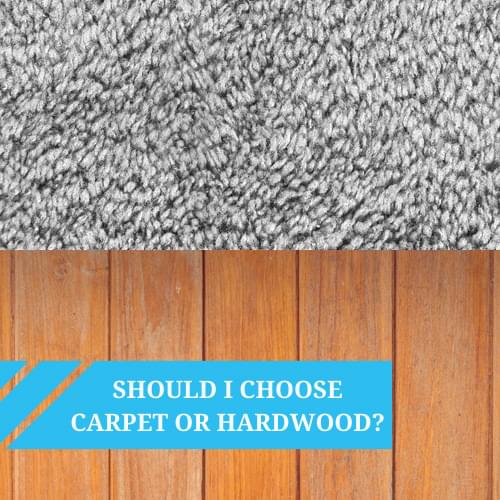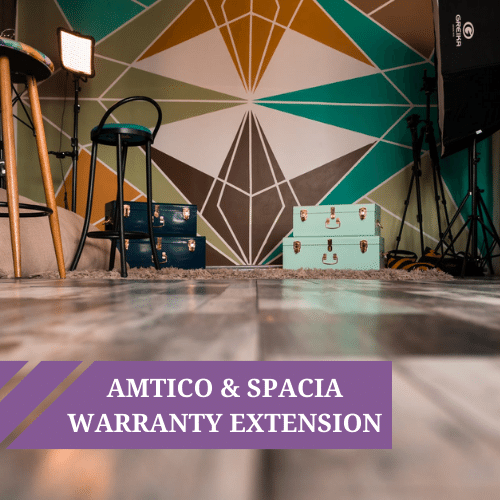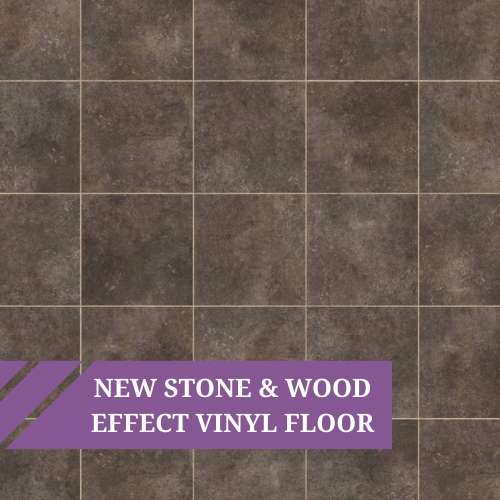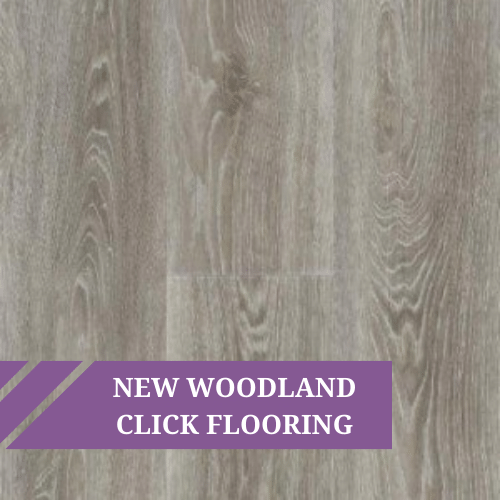We use cookies to make your experience better. To comply with the new e-Privacy directive, we need to ask for your consent to set the cookies. Learn more.
Vinyl Flooring Pros and Cons: Is it the Right Choice for Your Home?
this blog post has everything you need to know about vinyl flooring. Make an informed decision for your space and discover why vinyl might be the ideal choice for your home.
Vinyl flooring has come a long way in recent years and is now a widely popular choice among homeowners, largely thanks to its versatility, durability and affordability. With a wide range of options and price points available, vinyl floors can give your home the perfect look while being practical and easy to maintain.
But as with any flooring investment, it's important to understand the advantages and disadvantages of vinyl flooring before making a decision. In this guide, we'll break down the key benefits and considerations to help you choose if vinyl flooring is the right choice for your space.
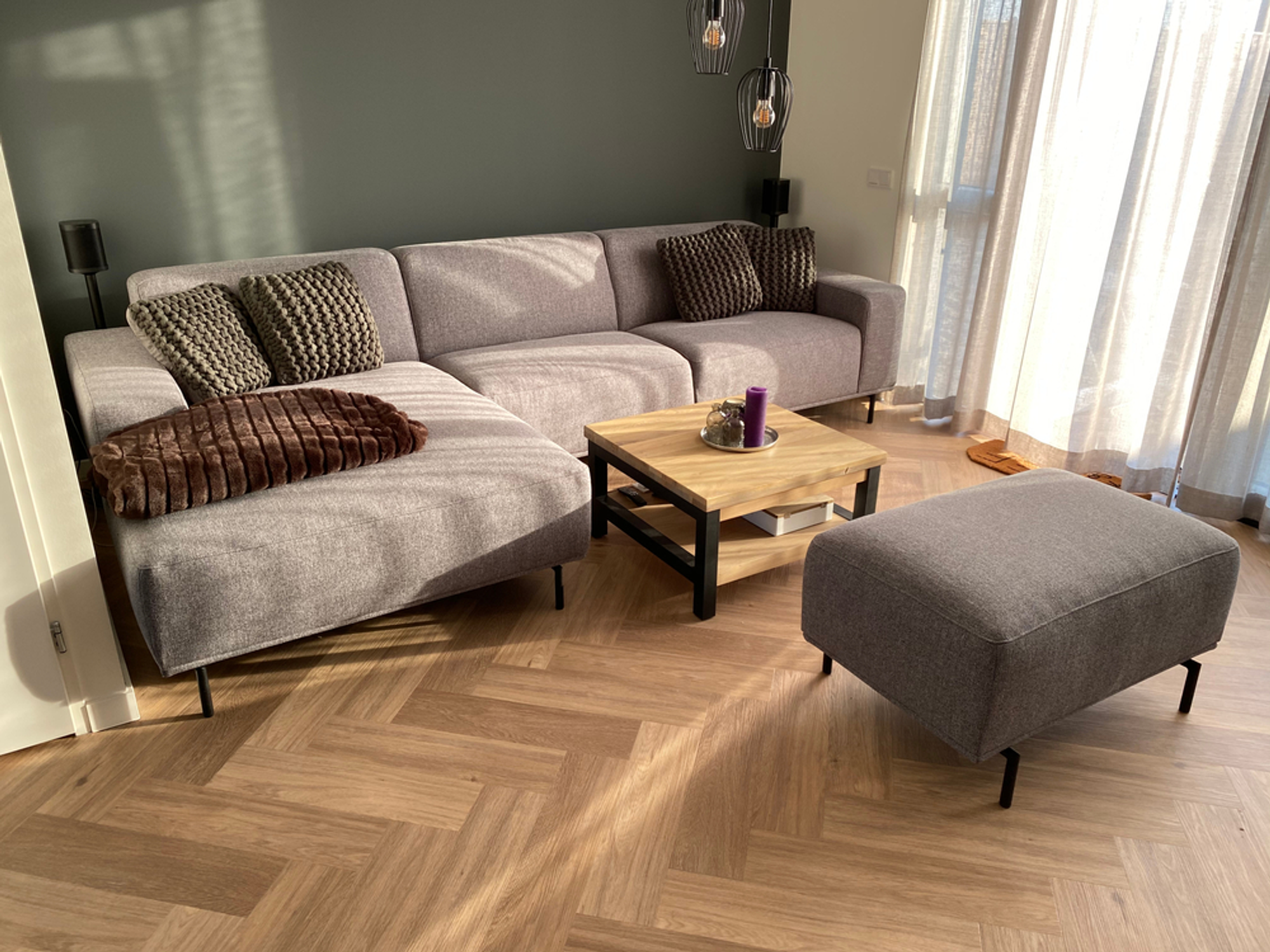

Before we get into the benefits, here's a quick recap on the main types of vinyl flooring:
Luxury Vinyl Flooring (LVT): Luxury vinyl flooring is a premium option, offering superior strength, durability, and aesthetic appeal. Vinyl plank flooring and vinyl tiles are engineered to mimic the look and texture of natural materials like stone and wood with a high degree of realism.
Sheet Vinyl Flooring: Sheet vinyl flooring is a cost-effective choice available in large, seamless sheets that offer a variety of designs and easy installation.
What are the Benefits of Vinyl Flooring?
Vinyl floors offer numerous advantages that make it an attractive option for homeowners, including:
Design Variety
One of the main advantages of vinyl flooring is the wide range of designs and patterns available. With advancements in printing and embossing technology, vinyl can now realistically simulate the look and texture of real wood and stone, providing a high-end aesthetic at a budget-friendly price.
Whether you prefer a hardwood look, stone appearance, or unique pattern, you're certain to find a style of vinyl floor to suit. Popular varieties include:
- Wood Effect: Perfect for adding warmth and a homely feel at a lower cost than hardwood flooring.
- Stone or Marble Effect: Offers a sleek and sophisticated look, ideal for creating a serene and elegant space.
- Herringbone and Parquet: These patterns add depth and interest, making them a timeless choice for any interior.
- Patterned: Terrazzo, mosaic, and Moroccan designs can add a unique and vibrant flair to your floors
- Black and White: Bold and contemporary, these tiles make a dramatic statement and can transform a room.
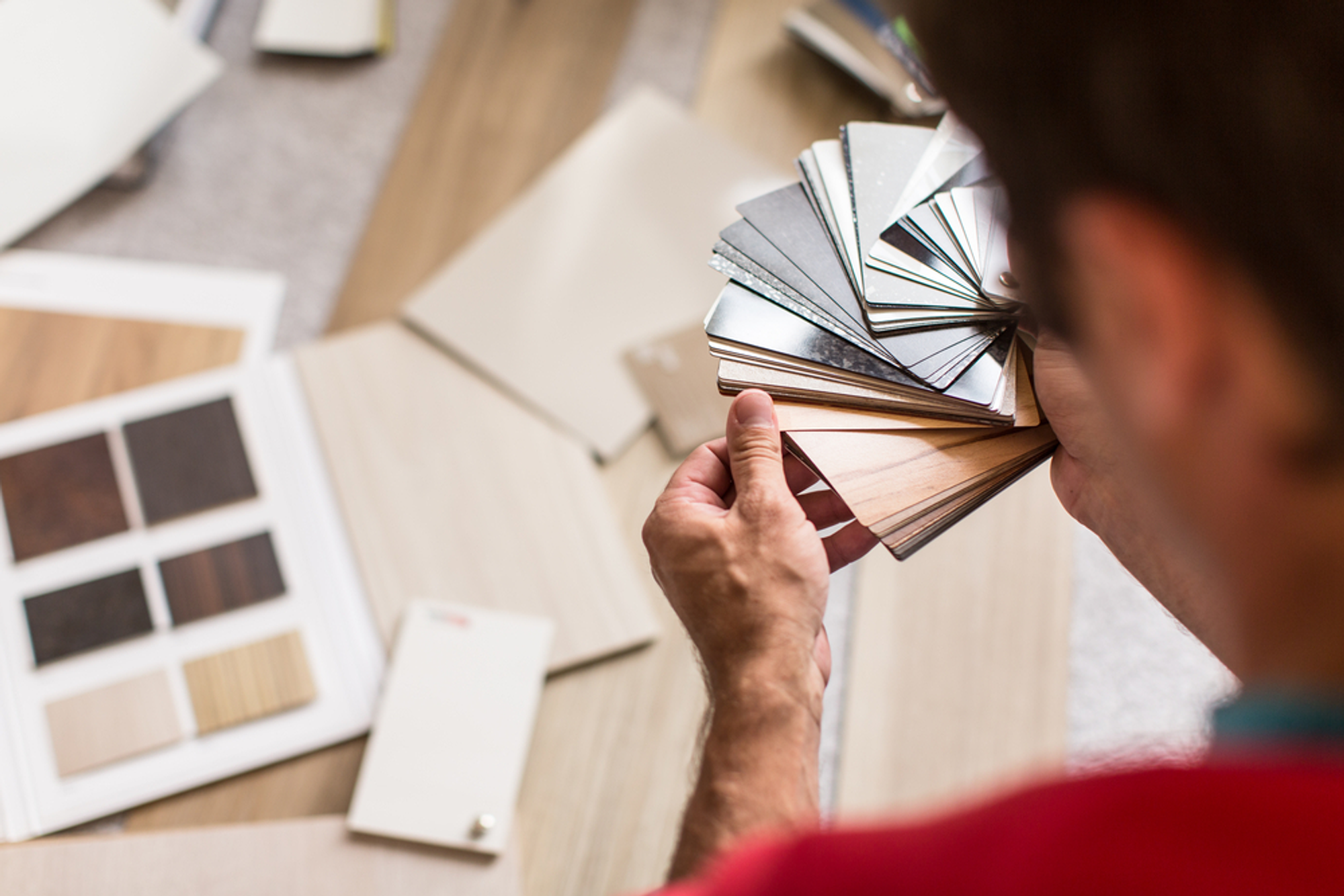

Durability
Both vinyl plank flooring and sheet vinyl are water-resistant and durable, ideally suited to kitchens, bathrooms, high-traffic areas, or homes with children and pets. Durability is also one of the main reasons why LVT is popular for commercial settings, such as restaurants, shops and other buildings with high levels of foot traffic.
The performance of the top layer, often called the wear layer, is crucial in protecting the flooring material from scratches, scuffs, and other damage. The lifespan can vary widely based on the quality of the product, the thickness of the wear layer, and how well it is maintained. Generally, you can expect good quality luxury vinyl flooring to last between 10 to 20 years, but some premium brands may offer warranties that extend even longer, suggesting a lifespan of up to 25 years or more under normal residential use.
Factors that contribute to the longevity of vinyl floors include:
- Quality of Material: Higher quality materials tend to be more durable and withstand wear better.
- Wear Layer: The thickness and quality of the wear layer is crucial. Wear layers can typically range from 0.1mm to 0.7mm.
- Traffic and Use: In high-traffic or commercial areas, the flooring may wear out faster than in residential settings.
- Maintenance: Following the manufacturer's guidelines for cleaning and maintenance can significantly extend the life of the flooring.
- Installation: Proper installation is key to longevity. Poorly installed flooring can lead to issues that shorten its life.
Easy to Clean and Maintain
Vinyl flooring is a low-maintenance option when compared to laminate or wood flooring, and is easy to keep clean. Its water resistance means it is remarkably tolerant of splashes and spills, although it's best to clean up spills as soon as they occur and avoid using excessive water when mopping, as water can potentially seep through the seams or edges to the subfloor.
A quick pass with a damp mop and a spot of mild detergent is enough — just remember that a little water goes a long way. Avoid using harsh chemicals or abrasives on your LVT flooring, which could cause permanent damage and even void your warranty. Following the care instructions provided will help to ensure your floor remains in the best condition.
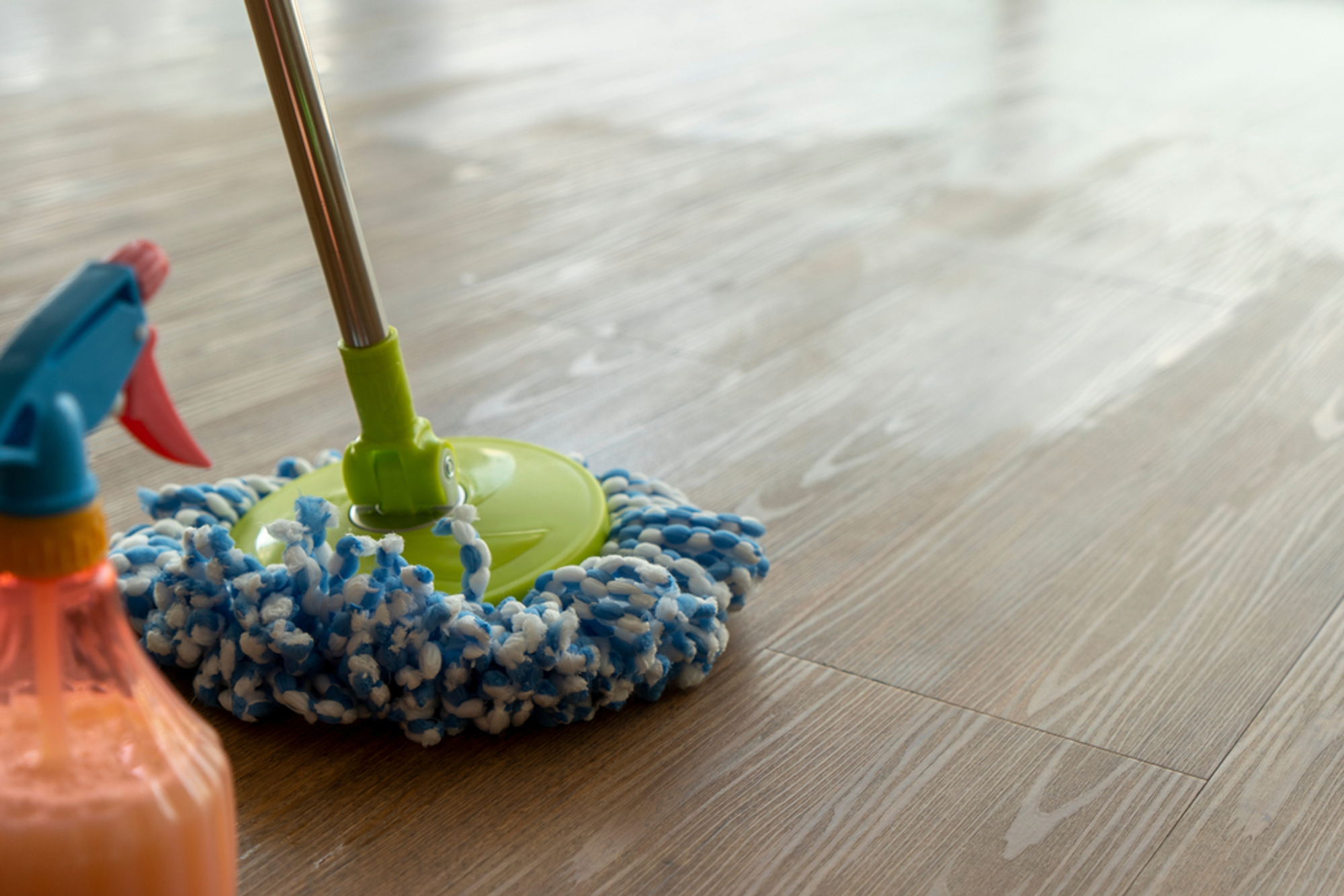

Affordability
Vinyl flooring is a cost-effective alternative to real wood or stone. Its lower price point makes it an attractive option for homeowners on a budget without sacrificing quality. Plus, with its easy maintenance and longevity, vinyl flooring can also save you money in the long term.
Suitable for Underfloor Heating
Most types of vinyl flooring are compatible with underfloor heating, allowing you to enjoy warmth and comfort while maintaining the aesthetic appeal of your floors. There are certain considerations to keep in mind:
Temperature Limits: Vinyl can soften if exposed to high temperatures, so it's important to ensure the underfloor heating system does not exceed the maximum temperature recommended by the vinyl flooring manufacturer, typically around 27°C (80°F).
Proper Installation: The subfloor and the heating system need to be properly prepared and installed to ensure even heat distribution and to avoid damaging the vinyl tiles.
Before installing vinyl flooring over an underfloor heating system, always consult with the heating system’s manufacturer and the flooring supplier to ensure full compatibility and to understand the specific requirements for a successful installation.
Considerations When Choosing Vinyl Flooring
While there are many benefits to vinyl flooring, there are also some considerations to keep in mind before installation. Here are a few factors to consider:
Subfloor Requirements
For optimal vinyl flooring installation, the subfloor must be clean, level, dry, and smooth to ensure robust adhesion and a flawless finish. The base must be structurally sound, devoid of any rot or instability, and free from soft coverings like carpet, as vinyl typically requires a hard surface such as concrete or plywood beneath it. Imperfections can show through, especially with thinner vinyl, while any moisture can lead to adhesive breakdown, mould issues, or warping, affecting both the appearance and longevity of the flooring.
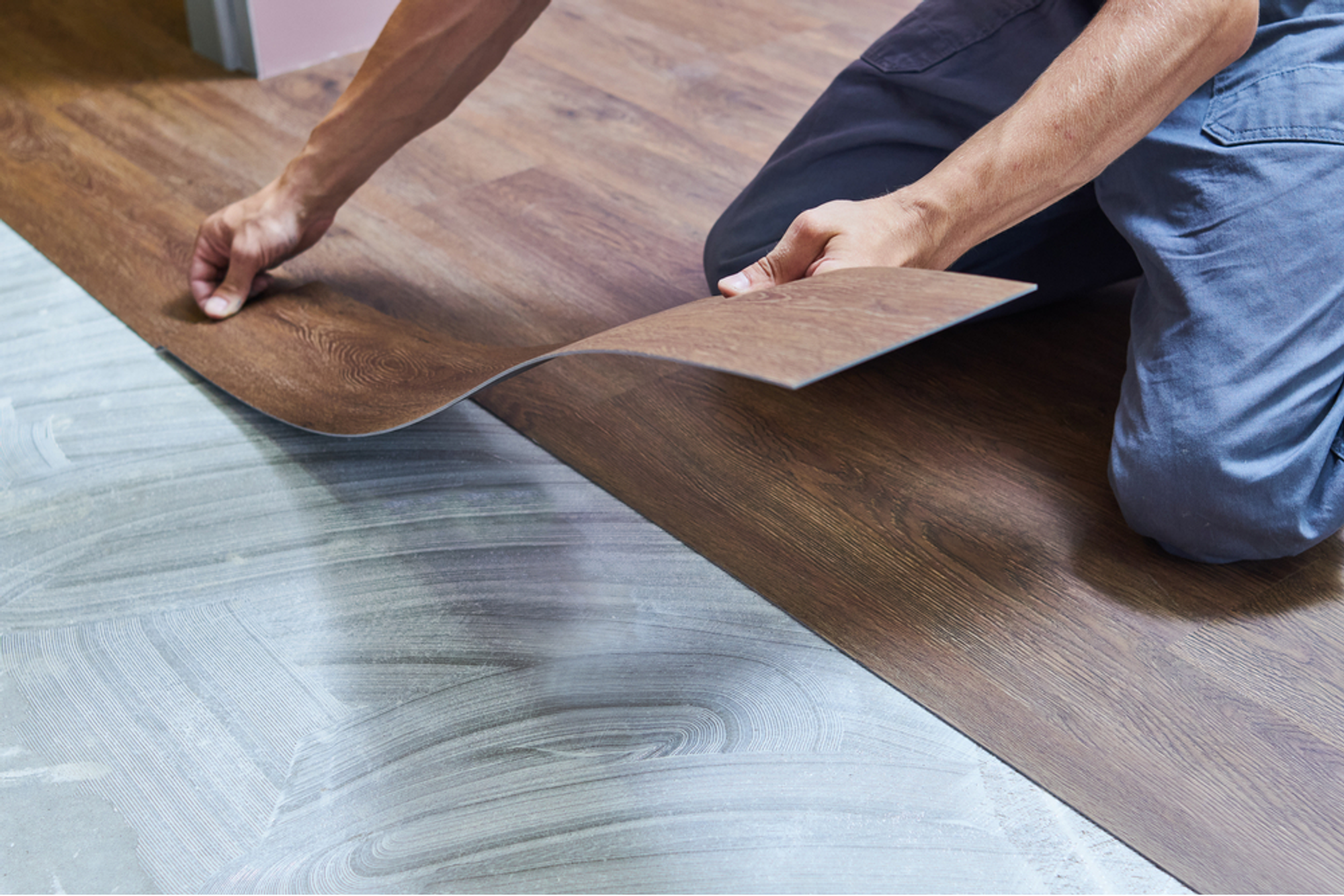

Heavy Loads
Vinyl flooring may not be the best choice for rooms with heavy furniture or equipment. Over time, the weight of these items can cause indentations or damage to vinyl flooring. One option to consider is using furniture pads or area rugs to protect your floors from heavy furniture legs.
Exposure to Sunlight
Over time, direct sunlight may cause fading and discolouration of vinyl flooring. If your space receives a lot of natural light, consider using window treatments or rugs to minimise the effects on your floors. Additionally, choosing vinyl with built-in UV protection can help prevent damage from sunlight.
Volatile Organic Compounds (VOCs)
The production of some types of vinyl flooring can involve the use of chemicals that may off-gas Volatile Organic Compounds (VOCs), which have been linked to health issues.
Some new vinyl flooring can emit VOCs when first installed, a process known as off-gassing. It is generally recommended to ventilate the area well for several days after new flooring is installed. The highest levels of VOCs are usually emitted when the product is new, and these emissions decrease significantly over time.
There are regulations and standards in place to limit the VOC levels, and flooring manufacturers have been working to reduce VOC emissions. For instance, the FloorScore certification is a voluntary, industry-wide standard that certifies flooring materials and products as low-VOC. Typically, all LVT flooring material is low in VOCs and classed as low risk for off-gassing.
Installation Costs
Vinyl floor installation costs can vary widely depending on several factors, including the type of vinyl flooring, the complexity of the job, and the preparation work needed. You may be able to install the flooring yourself, depending on the type of vinyl and your level of experience.
The potential to install vinyl as a DIY project is a real bonus in comparison to other types of flooring. For example, hardwood floors typically require professional installation, which includes labour for fitting, sanding, and finishing.
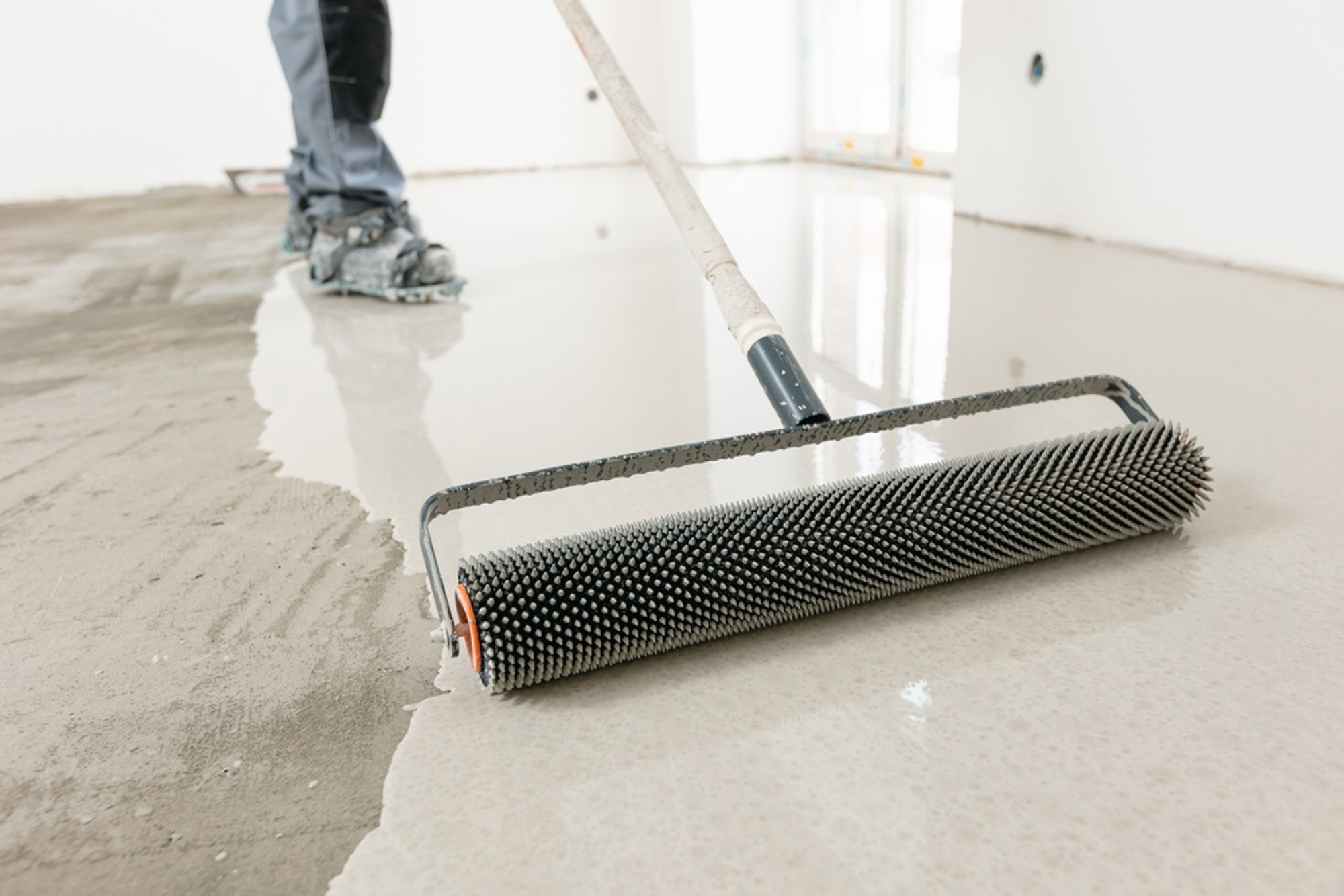

What are the Disadvantages of Vinyl Flooring?
Vinyl flooring, acclaimed for its cost-effectiveness and versatility, does have a few drawbacks:
- It may be prone to damage from sharp objects and can develop indentations under heavy furniture.
- Vinyl isn't the greenest choice as it's not biodegradable, and some varieties may emit volatile organic compounds (VOCs).
- Over time, exposure to sunlight may lead to fading, and certain materials can cause discolouration.
- Once installed, especially if glued down, it's a challenge to remove or repair without replacing a whole section.
- Vinyl doesn't carry the same value as natural flooring options, which might be a consideration for resale purposes.
Conclusion: Is Vinyl Flooring Right for You?
In summary, vinyl flooring offers many benefits, such as design variety, durability, easy maintenance, and affordability. However, it's essential to consider factors like subfloor requirements, heavy loads, and sunlight exposure before making a decision.
If you're looking for a cost-effective flooring option that can withstand wear and tear in high-traffic areas, vinyl flooring may be the perfect choice for your home. Explore our vast selection of vinyl flooring options to find the perfect match for your space. And don't forget to check out our related blog posts for more inspiration and tips on embracing vinyl flooring in your home design.






